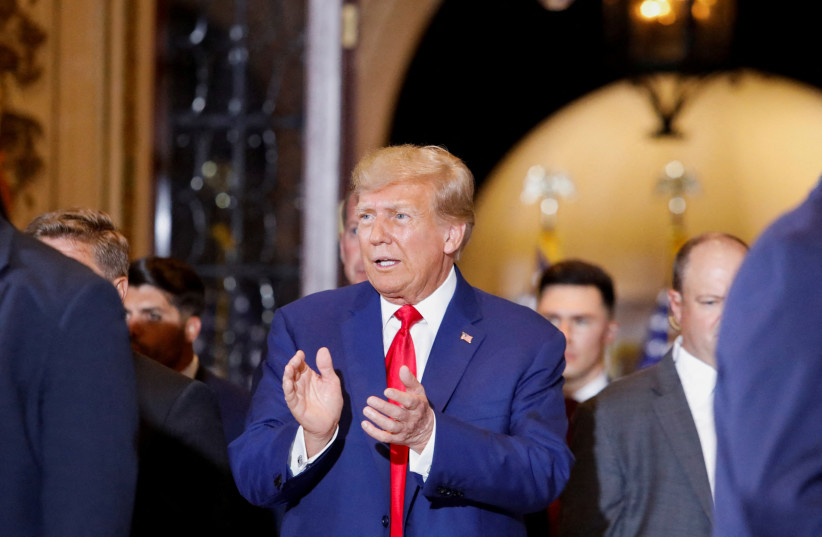One of the main pillars of the extraordinary relationship between Israel and the United States over the last 75 years has always been its bipartisan nature.
Regardless of the leaders at the helm of the respective countries, and despite periods of tension and disagreement, the questions of whether the US is led by a Democratic or Republican administration and the makeup of Israel’s coalition have always been secondary to the fundamental bond and values shared by Israel and the United States.
For decades, polls taken in the US showed overwhelming support for Israel across party lines. Times are different today, however. Polls taken over the last two years have shown a widening gap between Americans who identify as Republicans and those who align themselves with the Democrats.
Republicans are significantly more supportive than Democrats
The specific findings vary, but the conclusion is the same: Republicans are significantly more supportive than Democrats of Israel, while Democrats are now more sympathetic to Palestinians than they are to Israel.
In addition to that worrisome split, in the polarized political environment that has developed in the US and was exacerbated by the divisive election of Donald Trump to the presidency, bipartisanship has become a dirty word. The simple act of a standing prime minister hosting a prominent US elected representative presents a potential diplomatic land mine.

It places Israel, and particularly Prime Minister Benjamin Netanyahu, in a sensitive position. This is the season when high-profile delegations from the US are visiting Israel. Last week, Florida governor and presumptive 2024 Republican candidate for the presidency Ron DeSantis was in Jerusalem for an appearance at the Post’s Celebrate the Faces of Israel conference with the Museum of Tolerance Jerusalem.
Also last week, 12 congressional Democrats, led by House Minority Leader Hakeem Jeffries of New York, were on an official visit and marked both Remembrance Day and Independence Day, and this week Speaker of the House Kevin McCarthy is in Israel as head of a 19-member bipartisan congressional delegation. Later today, McCarthy is to become only the second House speaker to address the Knesset, after a 1998 address by Newt Gingrich.
To walk the tightrope of hosting supporters of Israel whose constituents despise each other and their respective leaders is a daunting task.
That could be why, when he met last week with DeSantis, Netanyahu’s office played it down. There were no joint statements or photographs issued by the Prime Minister’s Office. Other media reported that Netanyahu’s office didn’t publicize the meeting over concern about antagonizing both President Joe Biden and former president Donald Trump, DeSantis’s primary Republican rival leading up to the 2024 nomination.
Netanyahu is still waiting for an invitation to meet Biden in the White House, and he can’t risk being seen as promoting one of Trump’s potential opponents for the Republican nomination.
These sticky issues shouldn’t prevent a meeting with DeSantis, a polarizing figure on the US political landscape. DeSantis is an influential newsmaker and there is a chance his influence will grow by leaps and bounds next year.
To his detractors, however, the simple act of hosting him – in an office or at a conference as the Post did – is akin to “sleeping with the enemy.” The notion that providing DeSantis with a platform or greeting him at the Prime Minister’s Office is grounds for accusations of playing favorites demonstrates how strained and divisive the political discourse in the US has become.
It’s a hopeful sign that Netanyahu has internalized the principle that an Israeli leader can’t be perceived as siding with a particular party – an impression that many Democrats had during the Trump years, when the personalities of the two leaders became closely intertwined, and during the years of the Obama administration, when Israel and the US were often at odds, as exemplified by Netanyahu’s appearance before Congress in 2015.
Israel must remain above the fray in the US and our leaders must do whatever they can to prevent support for the Jewish state from turning into a hot potato issue, one that will force Americans to choose sides based on their party affiliation.
